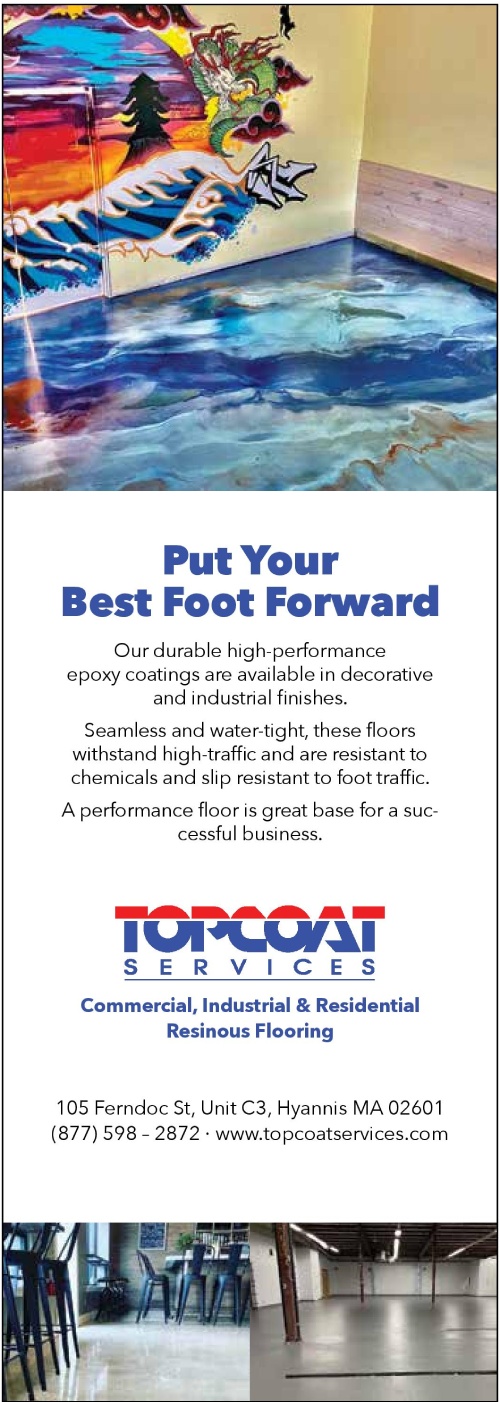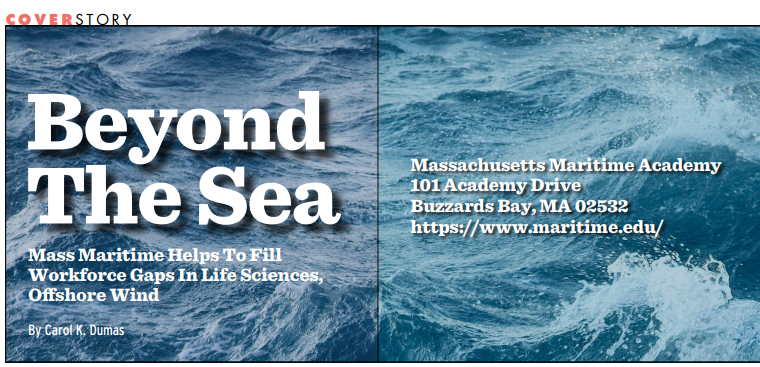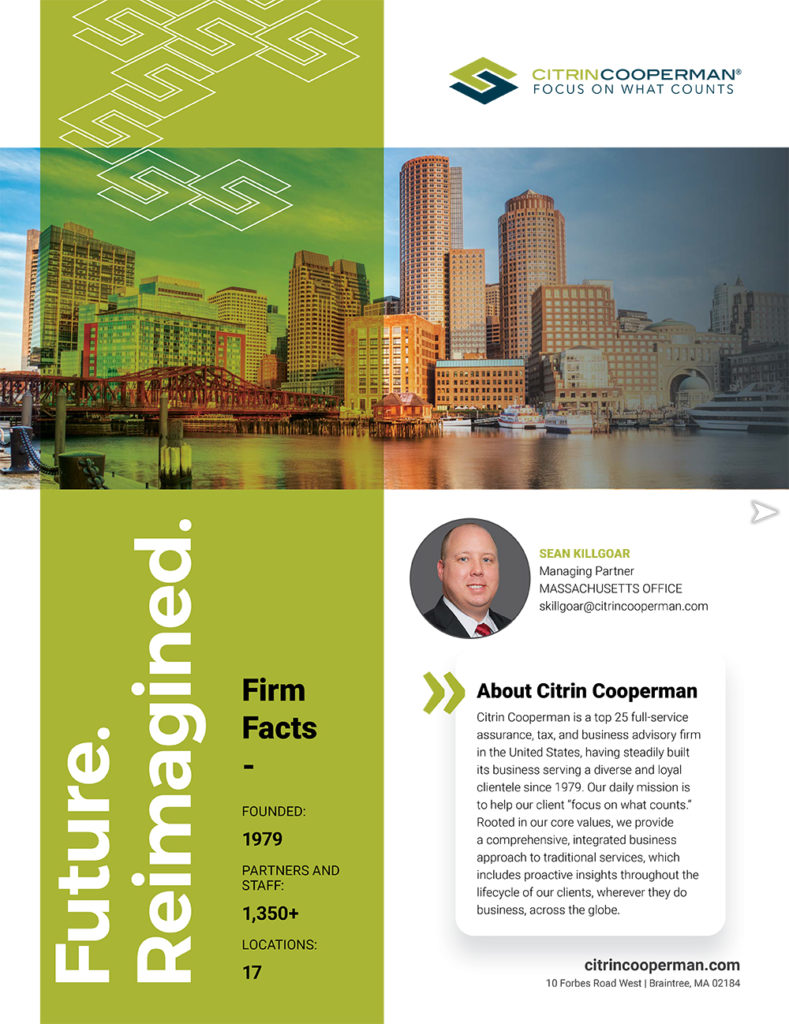By Carol K. Dumas
Ninety-eight companies in Massachusetts are currently working on therapies, delivering therapies or developing vaccines for COVID-19.
Three offshore wind farms are in various states of development 20 miles south of Nantucket and Martha’s Vineyard.
What do the life sciences and wind farms in the Atlantic Ocean have in common?
Both are drawing on the expertise of graduates of Massachusetts Maritime Academy (MMA), an state university in Bourne better known for training men and women for careers within the maritime industry.
The training offered by MMA in building infrastructure and systems and maintaining them for use aboard ships and its engineering focus is also applicable to the specialized infrastructure and systems that both life sciences and wind energy industries need to grow.
Life Sciences
While working in the offshore wind industry is an expanded focus for MMA, the biotech industry is a “hidden gem” for the Academy in terms of workforce development and training. While it is the scientists who perform the research, it is the engineers, health and safety specialists, and emergency preparedness workers who support the industry. The life science industry is the fastest growing industry in Massachusetts.
Three MMA alumni who have noteworthy careers in the life sciences industry are working to get the word out about the “perfect’ skill set that Mass Maritime Academy graduates can bring to that workforce. They strongly believe the education and training they received at MMA prepared them for careers in industries that were just starting to grow after they had graduated.
In 2008, alumni Rob DeCoste and Daniel Ramsey, undergraduate classmates at MMA were reconnected while obtaining their master’s degrees in Facilities Management. The bond forged during the program led to the founding of 42 North Solutions (based in Scituate), a company that provides specialized technical services within the life-science and pharmaceutical industries. The 42 North team focuses on project execution, facilities management and technical operations support. Among their clients are companies working on vaccines and delivery of medical therapies, particularly for COVID-19.
“There’s a growing need for a whole new generation of labor, resources, sub-contractors, delivery and research to deliver therapies for diseases and currently, to combat COVID-19,” said Ramsey. “We saw a need that MMA could fill because of our background at Mass Maritime.”
“In short, we will partner with a company to manage the process of having their facility built, systems started up and commissioned (ensuring the systems operate as designed),” explained DeCoste.
Once the buildings are complete, 42 North Solutions becomes an internal team member for the organization and performs a variety of roles including managing the facility with facilities management leadership and technicians, performing process engineering duties and helping to set up their internal programs and qualification of their systems.
“I always compare it to brewing beer,” said DeCoste. “If you have created a high quality product and it’s time to go to market, we’ll assist with managing the design, construction and operational readiness of your new facility. We make sure the support systems (HVAC, plumbing, etc.) are operating as designed and once the systems are built and verified we’ll work alongside your brew master on their complicated equipment in a variety of roles to ensure you’re getting a consistent product out to your distribution network.”
MMA graduates are uniquely suited for this kind of project management because of the team mentality instilled in them and the experience they have working through tough situations, such as aboard a ship, he added.
Alumni Robert Coughlin (class of 1991) is another mover and shaker within the life sciences industry and, like his fellow MMA graduates at 42 North, an enthusiastic advocate for Mass Maritime. He is the managing director of the national life science practice at JLL, a commercial real estate company with more than 100,000 employees worldwide. Coughlin specializes in the representation of lab, GMP (Good Manufacturing Practice) and creating solutions to align real estate strategies with scientific business objectives. He is the former CEO of the Massachusetts Biotechnology Council, where his mission was to advance the state’s leadership in the life sciences to grow the industry.
Coughlin was the fifth child in his family to attend Mass Maritime and one of his sons is a current cadet. He was driven to pursue a career in the life sciences when another son was diagnosed with cystic fibrosis. “I wanted to work in a field where these brilliant minds did medical research to solve unmet medical needs.”
The trio is behind the second annual Life Sciences Networking Event to be held March 24 at the Westin Hotel in Waltham (for alumni only).
“We want to share that not only can Mass Maritime find you a job, but a career you can build upon,” Coughlin said. “The life sciences can continue to grow with a workforce supplied by Mass Maritime.”
Wind Energy
The United States Department of Energy estimates 43,000 new jobs will be created in the offshore wind market by 2030. A Massachusetts Clean Energy study estimates that offshore wind farms will create 2,000 to 3,000 jobs and generate economic impacts between $1 and 2 billion in the region.
“Massachusetts Maritime Academy saw a unique opportunity to be involved in this growing industry and thought one of the most important ways we could contribute would be by training the men and women who will be on the front lines of this new industry,” said Capt. Mike Burns, Executive Director of the Academy’s Maritime Center for Responsible Energy. “We’re helping prepare the workforce for clean energy opportunities that are coming to our region by delivering key training for personnel who will build the wind farms that will power the Northeast region with clean energy.”
MMA began looking into offshore wind training during the development of the Cape Wind project more than a decade ago.
“As we investigated the training requirements, we were informed by many industry stakeholders that the Global Wind Organization (GWO) standards were the most widely accepted by the industry,” explains Admiral Francis McDonald, MMA president. “Upon researching the GWO standards, we realized that much of the content paralleled training programs that we currently offered under our U.S. Coast Guard-approved courses. Our research indicated that the broadest need would be for GWO Basic Safety Training (BST). This is where we decided to begin.”
Burns and McDonald agree there are countless potential career paths within the industry relevant to MMA’s undergraduate and undergraduate programs. They have partnered with a well-known training provider in the offshore wind industry, Relyon Nutec, which helped MMA develop its facilities, train instructors and get the academy’s training site approved by GWO.
“We were able to begin offering training sessions in November 2019 and, since then, have trained about 150 participants in Global Wind Organization Best Safety Training,” Burns says.
Mass Maritime is also partnering with industry stakeholders including Vineyard Wind, Mayflower Wind and Crowley to provide scholarships, internships and advice from industry experts.
“We currently have cadets from several majors completing internships with the major developers and suppliers,” McDonald says. “As part of our commitment to diversify the workforce in these high demand and well paying fields, we are also expanding our programming to include outreach to K-12 schools and, in particular, to our gateway cities.”
While supplying a workforce for the offshore wind industry may seem like a shift in focus for Mass Maritime, it’s really more of an expansion of focus, the admiral emphasized.
“We have been teaching people to work offshore and to work in the energy field for over a century, and we are excited to apply that experience to the offshore wind industry as it grows in the U.S.,” he said.
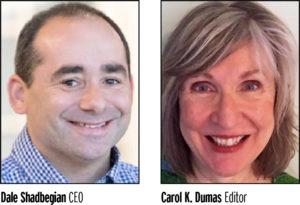
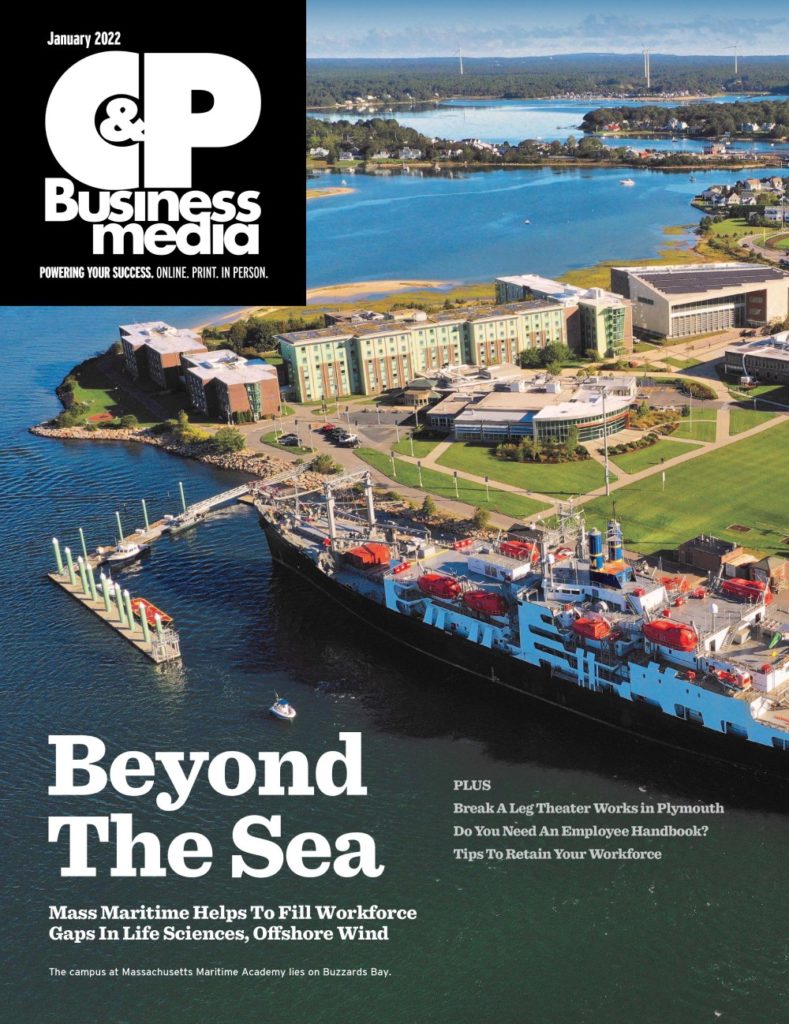








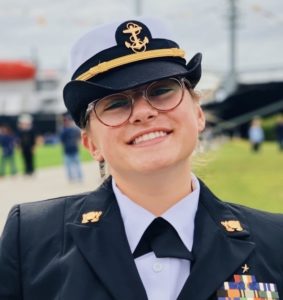 Meet Cadet Ella Strano
Meet Cadet Ella Strano

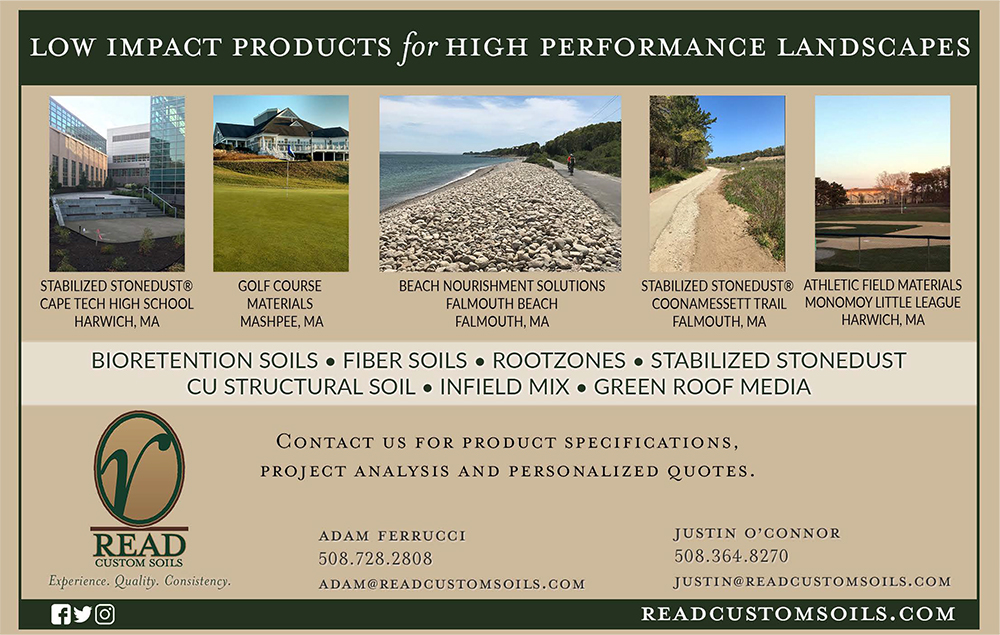

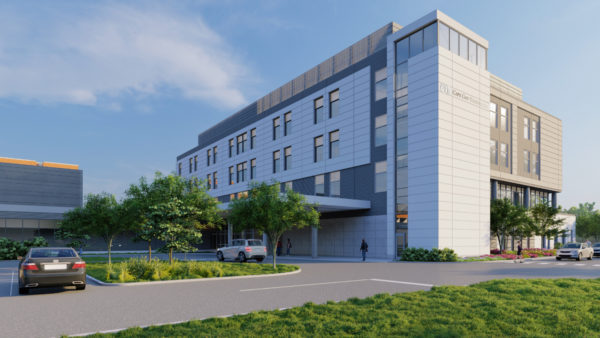
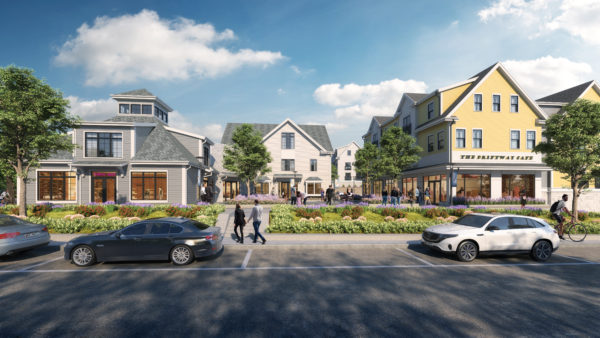 The Drew Company, a Boston-based, privately held, real estate development and management company, is constructing a luxury, 78-unit mixed-use development, SkySail at Driftway, at 100-108 Old Driftway and 318 New Driftway in Scituate.
The Drew Company, a Boston-based, privately held, real estate development and management company, is constructing a luxury, 78-unit mixed-use development, SkySail at Driftway, at 100-108 Old Driftway and 318 New Driftway in Scituate.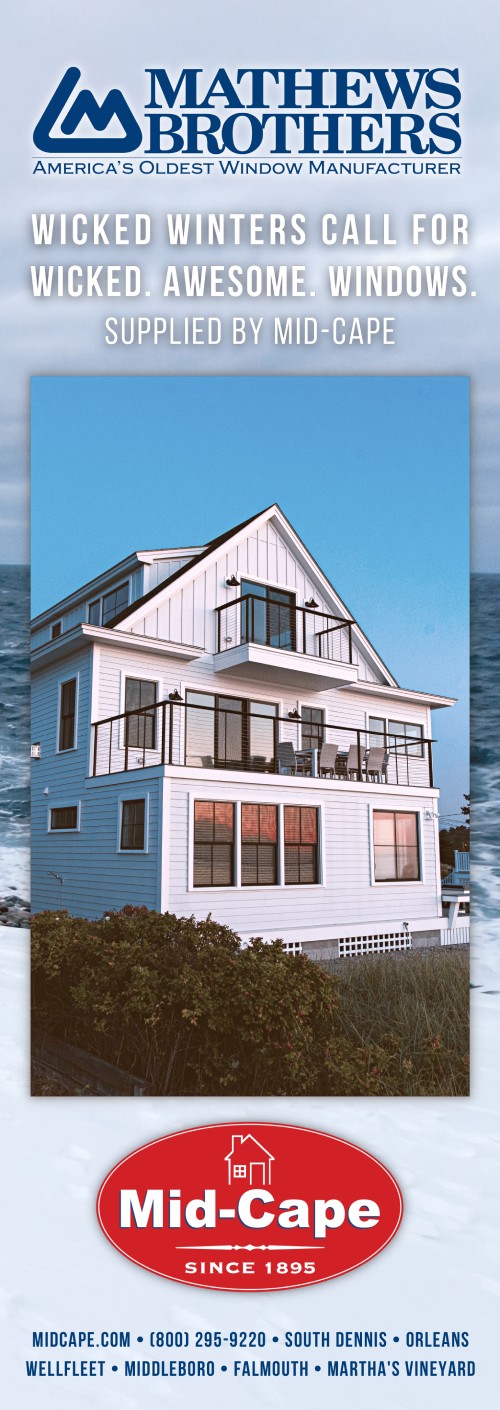
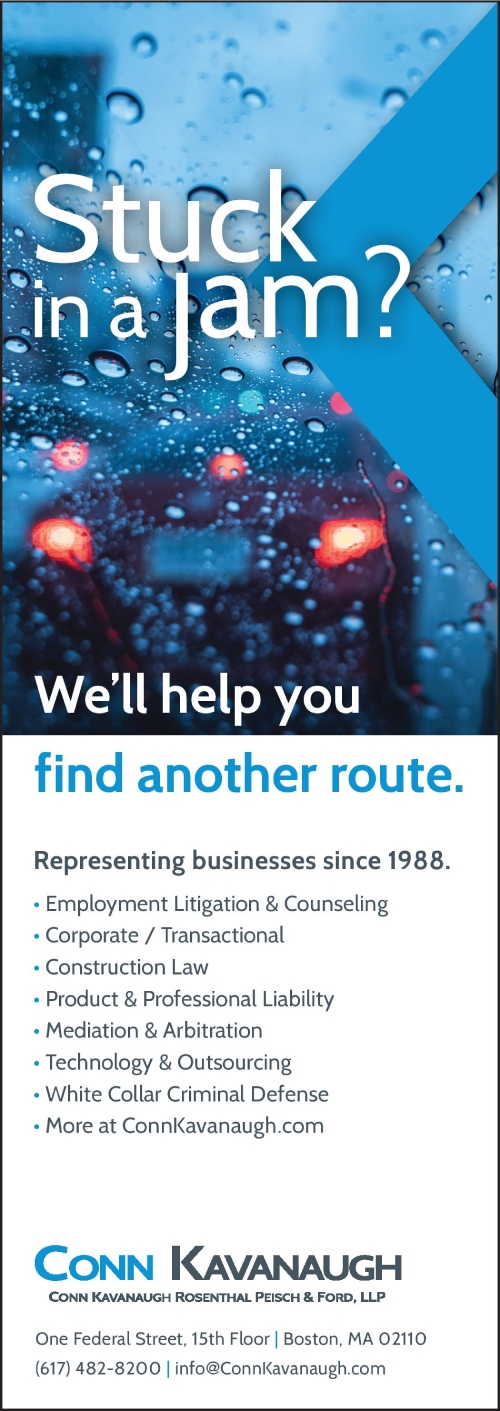


 By Bill O’Neill
By Bill O’Neill
